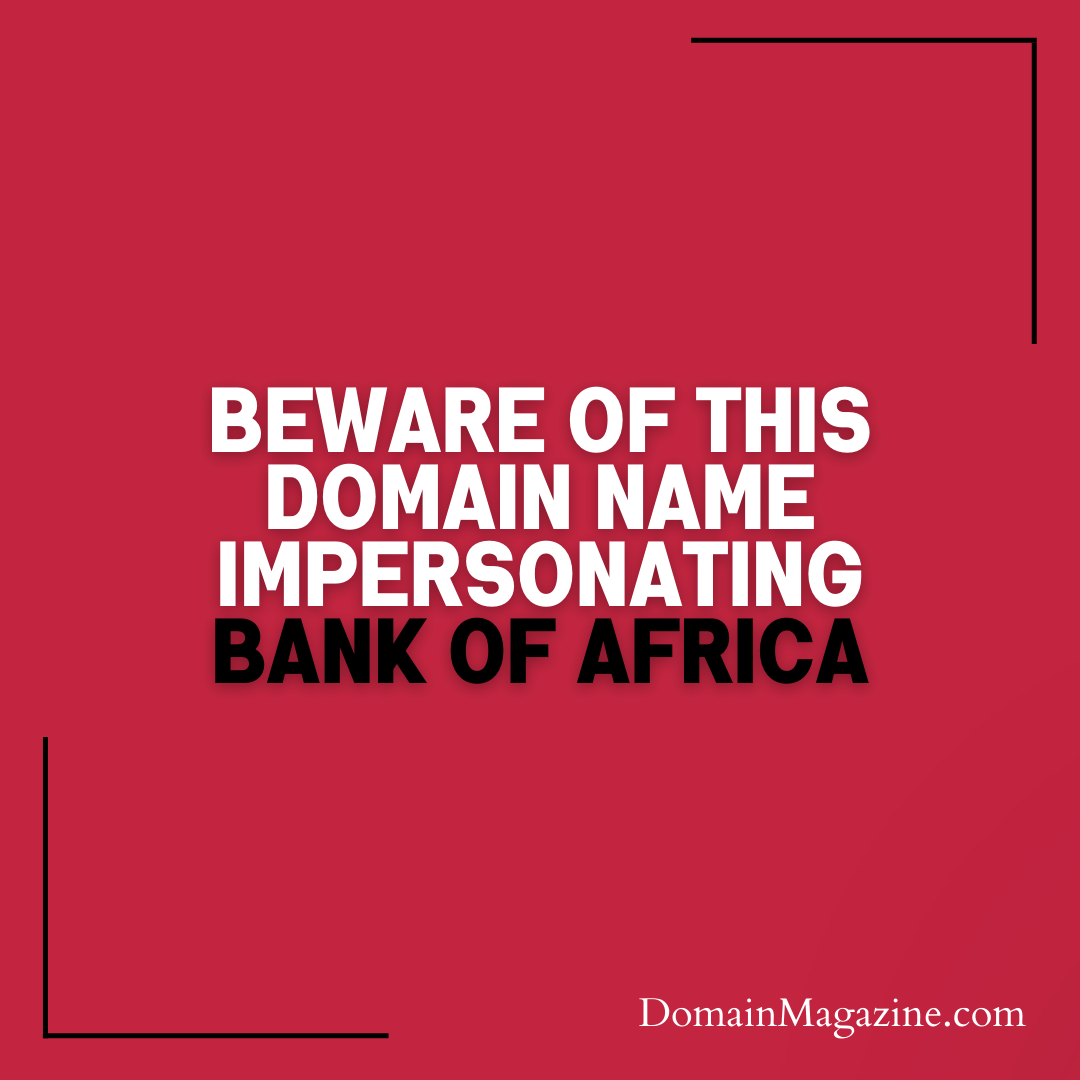In an age where the internet plays an increasingly central role in our lives, the security of our online activities has become paramount. As cyber threats continue to evolve, one common tactic used by malicious actors is the creation of deceptive websites impersonating legitimate organizations. Recently, a notable example has come to light: a fraudulent domain that purports to belong to the Bank of Africa, enticing visitors with promises of grants. In this article, we’ll take a closer look at this deceptive domain, how it operates, and what you should be cautious of when navigating the online world.

The Deceptive Domain: starprize.top
The fraudulent website, operating under the domain name Starprize[.]top, is designed to mimic the official website of the Bank of Africa. It displays the branding and logo of the financial institution, making it appear authentic at first glance. However, a closer examination reveals its true nature.
How the Scam Operates
Upon visiting the website, users are prompted to answer a questionnaire to access the supposed “National Government Poverty Fund Subsidy.” The questionnaire contains four seemingly harmless questions, such as age, gender, familiarity with the Bank of Africa, and one’s opinion of the institution. Once completed, users are congratulated and informed that their answers have been successfully saved.
The catch? Users are then urged to select from a list of boxes, with the promise of a prize hidden among them. The website offers three attempts to find the prize, which often turns out to be a grant worth KSh 67,335 (Kenyan Shillings). However, claiming this “grant” comes with a price.
The Scammers’ Plan
To claim the supposed grant, users are required to share the promotion with five groups or 20 friends and provide their personal information, including their address. The fraudulent website promises that the “gift” will be delivered within five to seven days. This sequence of events is a familiar tactic in many phishing scams aimed at mining personal information.
Furthermore, the scammers leverage the psychology of curiosity and reward. Users are lured in with the promise of a valuable prize and are encouraged to share it with more people, which ultimately benefits the operators of these deceptive schemes.
Verification of the Hoax
One of the most telling signs that this website is a hoax is the absence of any legitimate information on the Bank of Africa’s official website, Facebook page, or Twitter account regarding the grant or the starprize.top domain.
The Domain Name Discrepancy
Another critical point of verification is the domain name itself. The fraudulent website operates under starprize.top, while the legitimate Bank of Africa’s website can be found at Bank-Of-Africa.net. This stark difference in domain names is a clear indicator that the deceptive site is not associated with the genuine financial institution.
WHOIS Information
The WHOIS information for the fraudulent website reveals that it was registered on March 30, 2023, in Arizona, US. In contrast, the legitimate Bank of Africa’s website was registered on June 12, 2006. This significant gap in registration dates further demonstrates the fraudulent nature of starprize.top.
Bank of Africa’s Response
The Bank of Africa has taken steps to protect its customers and the public from falling victim to this scam. Caroline Mulwa, the head of marketing at Bank of Africa, disowned the dubious website and issued a warning to the public to disregard it. In a Facebook post dated April 18, 2023, the bank reiterated its commitment to safeguarding personal data and advised the public to be vigilant against scams.
Conclusion
In the ever-expanding digital landscape, scams and fraudulent websites are an unfortunate reality. The deceptive domain starprize.top impersonating the Bank of Africa serves as a reminder of the importance of vigilance and skepticism when navigating the online world.
Remember to be cautious when encountering offers that appear too good to be true, especially if they require you to share personal information or engage in potentially risky activities. Always verify the legitimacy of a website, especially when it involves financial institutions or the sharing of personal data.
Protecting your online presence is crucial, and staying informed about such deceptive tactics is a significant step in the right direction. Be aware, be cautious, and together we can help keep the internet a safer place for all.


Join the Discussion